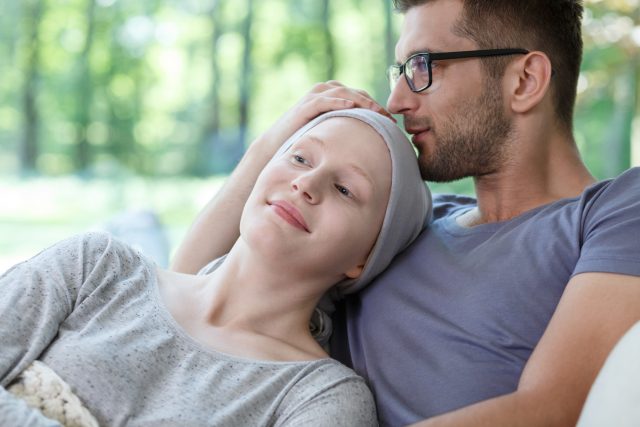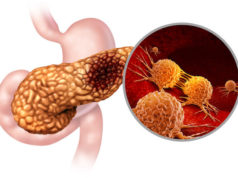Fighting cancer is no easy feat. The symptoms of cancer alone can be very taxing on the body, but the side effects of cancer treatments can be even more so. The trying journey can cause fatigue, anxiety, nausea, and pain, and many cancer patients have trouble relieving these symptoms. Recent research has shown that certain natural methods can help to alleviate the negative side effects that cancer treatments can have on your body. Doing so can help you have a clear mindset and a better outlook during your treatments, which can go a long way to preserving your physical and mental health.
You can work with your cancer care team to create a personalized plan that helps to keep your body strong while its fighting the disease. The following seven methods are proven ways to help nurture your body while you’re treating cancer.
 Acupuncture. This treatment works for a variety of ailments, including nausea, vomiting, pain, and stress. During acupuncture, the practitioner will place tiny needles into your skin at certain points in your body. Because acupuncture isn’t safe for patients on blood thinners or who have low blood counts, it’s important to check with your physician before beginning any acupuncture treatment.
Acupuncture. This treatment works for a variety of ailments, including nausea, vomiting, pain, and stress. During acupuncture, the practitioner will place tiny needles into your skin at certain points in your body. Because acupuncture isn’t safe for patients on blood thinners or who have low blood counts, it’s important to check with your physician before beginning any acupuncture treatment.
 Aromatherapy. Another natural treatment that alleviates stress, nausea, and pain, aromatherapy uses different oils to create a sense of calm in the body. Oils like lavender are either applied directly to your skin, or they can be added to the water that you bathe in. Hot oils can also give off steam in the air, which can help create a relaxing, soothing environment. A certified practitioner can treat you with aromatherapy techniques, but you can also use it on your own if you do enough research.
Aromatherapy. Another natural treatment that alleviates stress, nausea, and pain, aromatherapy uses different oils to create a sense of calm in the body. Oils like lavender are either applied directly to your skin, or they can be added to the water that you bathe in. Hot oils can also give off steam in the air, which can help create a relaxing, soothing environment. A certified practitioner can treat you with aromatherapy techniques, but you can also use it on your own if you do enough research.
Exercise. Exercise is a great way to fight fatigue and help you get better sleep at night. It’s also an excellent way of relieving the the body’s stress Recent research has shown that cancer patients who perform gentle exercises might actually live longer. It’s important to consult your doctor before starting any new exercise routine, and it’s probably best to start at a slow pace and ease your body into it. It would be ideal to eventually include around 30 minutes of exercise in your routine each day.
Hypnosis. Hypnosis therapy involves getting your mind into a deep place of concentration. During a session, a therapist will help you relax by using a gentle voice have prompt you to imagine your ideal goals, which may include eliminating your pain or decreasing your stress levels. It can help to relieve anxiety, pain, and stress. Let your doctor know if you have a history of mental illness before beginning any kind of hypnosis therapy.
 Massage. Massages work to eliminate tension in your muscles and tendons, which then helps to relax your entire body. There are many different kinds of massage methods, which include both light or deep massages, but all of them can help to treat the pain, anxiety, stress, and fatigue that comes with cancer. Make sure you find a massage therapist who is certified and competent. Your cancer care team might be able to refer you to someone who works especially with cancer patients. It’s important to check with your doctor before incorporating massage into your treatment plan.
Massage. Massages work to eliminate tension in your muscles and tendons, which then helps to relax your entire body. There are many different kinds of massage methods, which include both light or deep massages, but all of them can help to treat the pain, anxiety, stress, and fatigue that comes with cancer. Make sure you find a massage therapist who is certified and competent. Your cancer care team might be able to refer you to someone who works especially with cancer patients. It’s important to check with your doctor before incorporating massage into your treatment plan.
 Meditation. Similar to hypnosis, meditation allows your mind to get in a deep state of concentration. You can do this by fixating on one particular image, sound, or idea, like a positive affirmation. Meditation also usually involves deep breathing and relaxation exercises, which work to relieve stress and anxiety. Meditation is a great method to use in the comfort of your own home, but there are also classes with instructors who guide you through the process.
Meditation. Similar to hypnosis, meditation allows your mind to get in a deep state of concentration. You can do this by fixating on one particular image, sound, or idea, like a positive affirmation. Meditation also usually involves deep breathing and relaxation exercises, which work to relieve stress and anxiety. Meditation is a great method to use in the comfort of your own home, but there are also classes with instructors who guide you through the process.
Music Therapy. Music has been proven to relieve stress, pain, and anxiety. Therapy sessions usually include both listening to and playing music, and even writing song lyrics. Attending a session led by a certified music therapist will help you learn activities that work to alleviate your particular concerns.




























